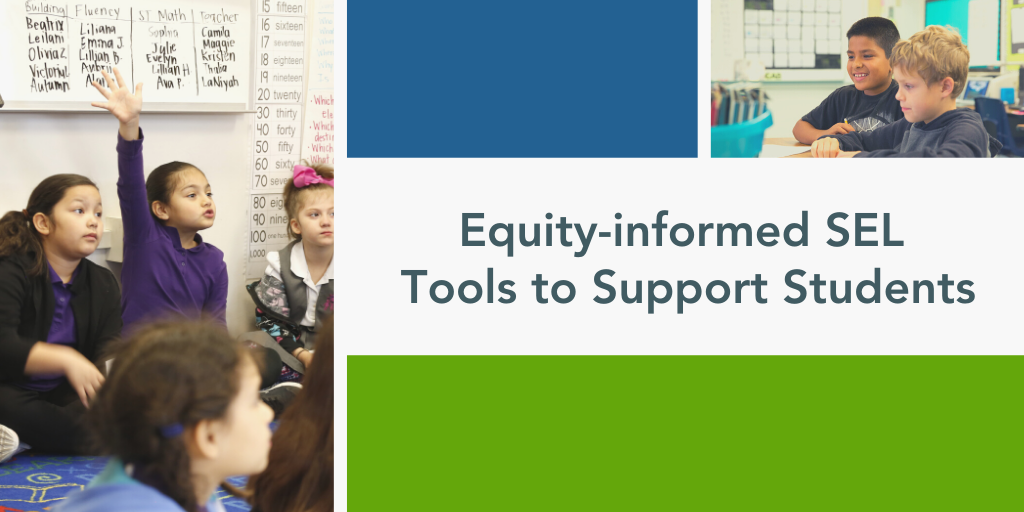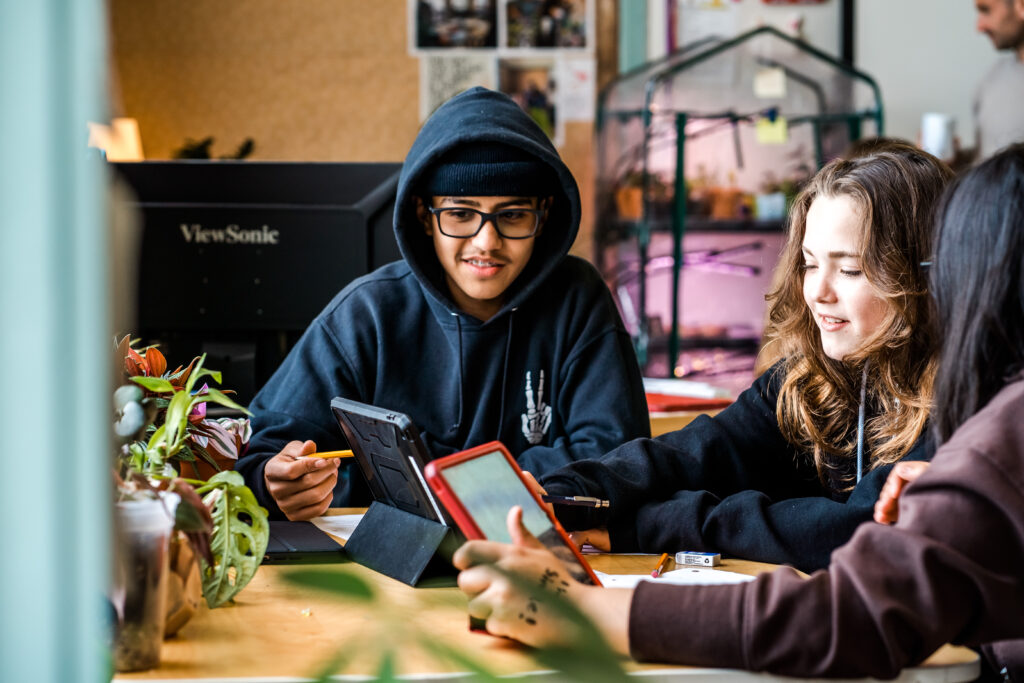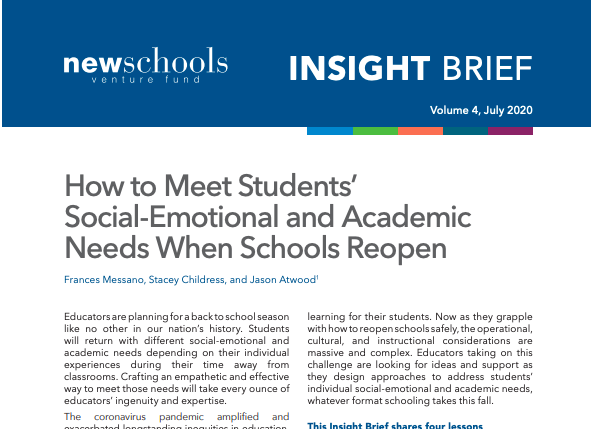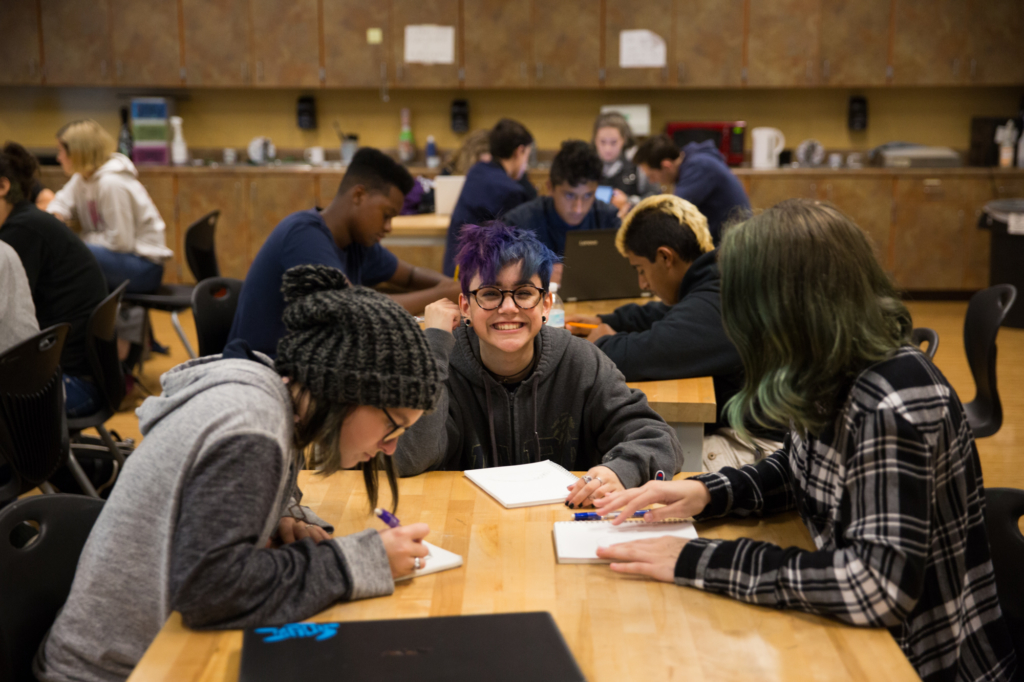By Cameron White, Senior Associate Partner

Even before the COVID-19 public health crisis, equity-minded educators recognized the importance of social-emotional learning (SEL) in supporting students’ growth. In a survey conducted by EdWeek before widespread school closures, almost 90 percent of K-12 district leaders had already invested in products designed to support SEL. COVID-19 has reinforced — or perhaps revealed — a range of equity-related challenges to implementing these plans. Remote learning may not represent the “new normal,” yet for the time being, it has increased distance between students, their peers, and educators. Resulting educational gaps are compounded by an economic downturn that affects many households’ finances in the short term, as well as school funding in the longer term.
While limited time and tightening budgets may create pressure to narrow the focus of education — for example, to limit learning loss in core subject areas — there is also a renewed urgency to empower students from all backgrounds through SEL. According to the National Equity Project, integrating SEL into instruction can help educators “create inclusive, liberatory learning environments in which students of color and students living in poverty experience a sense of belonging, agency to shape the content and process of their learning, and thrive.” Building resilience can also help to mitigate the risks of prolonged stress, which if left unchecked can create “a cumulative toll on an individual’s physical and mental health — for a lifetime.” In a world where caregivers’ time and capacity to support students’ SEL development varies widely, there is an opportunity for educators to develop shared expertise and practices that can form a foundation for healthy relationships, at school and home, in the years to come.
Technology itself is not the solution to these complex challenges, and its potential is limited by the persistent effects of the “digital divide.” Nonetheless, in times characterized by widespread isolation, thoughtful integration of high-quality ed tech can create powerful opportunities to strengthen human connections within and across diverse communities. Below I share three examples from NewSchools’ Ed Tech portfolio of technology-enabled, equity-informed solutions that can support educators in addressing these areas. Like many of our investments focused on an expanded definition of student success, these tools are rooted in the experiences of Black students, Latino students, and students in low-income communities.
Yoga Foster — Mindful Remote Learning Platform
Yoga Foster, Meditation for Kids: Anxiety
One method that has shown initial promise in supporting students’ mental health is the integration of mindfulness techniques, which can help students and educators from all backgrounds stay grounded in the face of uncertainty. Stress-reduction expert Jon Kabat-Zinn defines mindfulness as “awareness that arises through paying attention, on purpose, in the present moment, non-judgmentally … in the service of self-understanding and wisdom.” Yoga Foster’s Mindful Remote Learning Platform combines pre-recorded meditation videos with offline journal reflections exploring key topics such as anxiety, difficult emotions, and gratitude. The platform also offers accessible opportunities for “mindful movement” through short (15- to 45-minute) yoga breaks, many of which are led by educators of color. These resources — available in both English and Spanish — are free for teachers and parents. For those interested in taking these practices deeper, Yoga Foster also offers monthly subscriptions for families, as well as professional development for educators.
Stop, Breathe, & Think — Classroom Toolkits
Stop, Breathe, & Think, Classroom Wall Art
Another product offering support for students’ mental health is Stop, Breathe, & Think’s Classroom toolkits, which provide access to more than 100 mindfulness and yoga activities. Exercises are designed to help students work through stress and anxiety while strengthening relationships and communication. A recently added “For Youth of Color” category addresses topics such as “celebrating our black and brown bodies,” “feeling connected,” and “rediscovering the good in me.” In the words of one fifth grade teacher who has used the product: “I was so impressed with the cultural sensitivity of these meditations. I am Latina, and all of my students are Hispanic. We are a Title 1 school. I never thought before about meditation in communities of color until I listened to the new set and realized how much better it could be for us.” Lifetime educator subscriptions are currently free.
Sown to Grow — Tools to support student reflection
Sown To Grow, Check-in, planning and reflection modules
A third approach supporting students’ SEL growth is Sown to Grow’s student goal-setting and reflection tools. Newly released learning modules — which can be completed online or through a printed version — facilitate a simple morning check-in and afternoon check-out. The tools are designed for flexibility, enabling students to engage with topics related to psychological development as well as academic planning and reflection. In designing the updated tool to address gaps related to “social-emotional well-being, personal planning, and self-motivation,” the team considered the importance of routine amid uncertainty, especially for students in underserved communities. According to co-founder and CEO Rupa Gupta: “This time cannot be just about academic continuity. Our students’ social and emotional health and well-being through this crisis likely have far greater implications for their outcomes than their grades.”
At a time when many schools will likely be operating with reduced resources, our hope is that the implementation of high-quality, accessible tools concentrated on mental health and SEL can support continued efforts to increase equity, during school closures and beyond.



